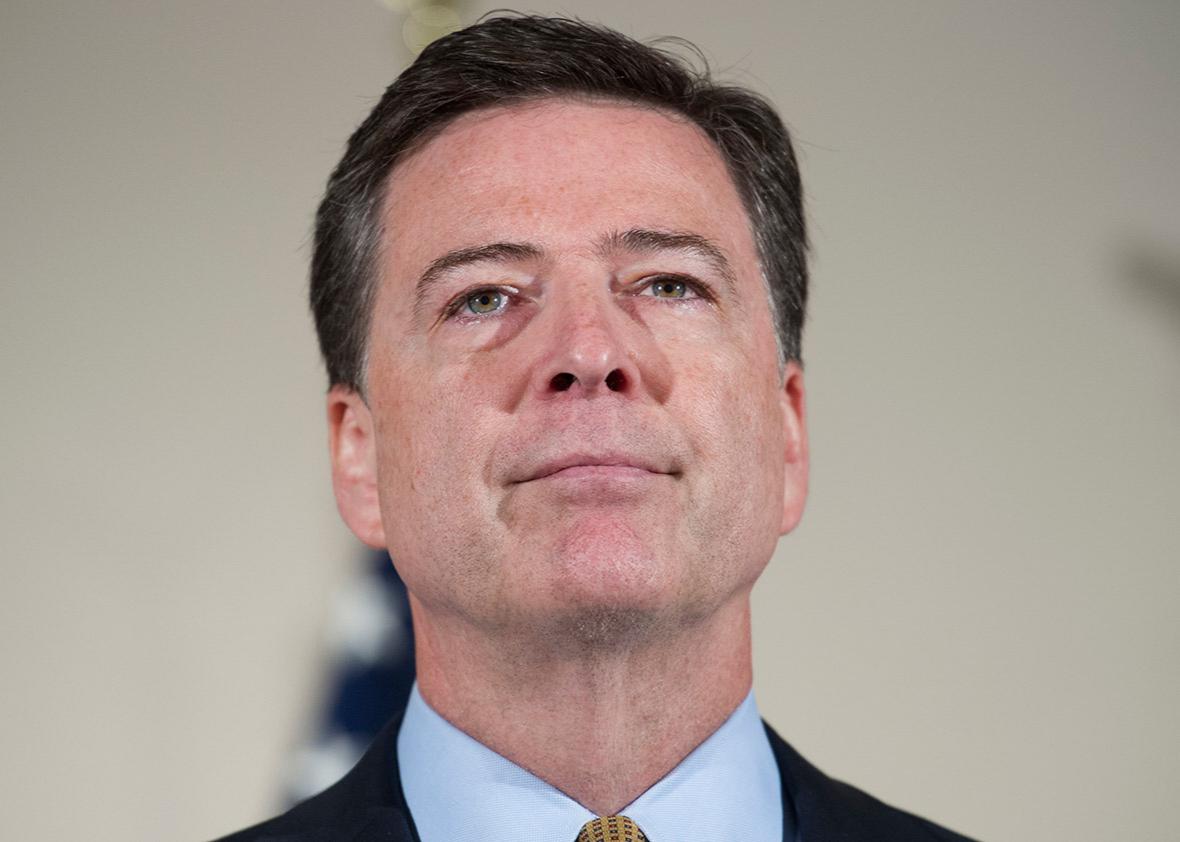FBI Director James Comey announced Tuesday morning that his agency would not recommend prosecuting Hillary Clinton for conducting official business via a personal email address while secretary of state. The response from Republican leaders and conservative pundits has been disappointed but resigned. From prominent California Rep. Darrell Issa:
From the Republican National Committee’s Sean Spicer:
And Paul Ryan:
What you see there is a lot of people who are unhappy about the decision and still believe Hillary Clinton may have committed a criminal act. But what you don’t see are any demands for further investigations, personal attacks on Comey’s integrity, or suggestions that Clinton needs to drop out of the presidential race. The GOP appears to be chalking this one up as a loss and moving on.
Why does the party that investigated Benghazi about 900 times seem willing to let this go? Here are a few possible reasons.
The FBI’s decision was not unexpected. Previous reports on the investigation had indicated that nothing the agency had found constituted “smoking gun”–type evidence of misconduct that would make a prosecution unavoidable. Outrage over Clinton’s impending nonindictment has already been burning off for months. It might not be possible to get any more political mileage out of this than has already been gotten.
The Benghazi hearings demonstrated the limits of endless outrage. The GOP’s umpteenth Benghazi committee, led by Trey Gowdy, put on hearings that seemed ridiculous to nonpartisan observers, birthed a pro-Hillary meme image, and concluded in a lot of mainstream-media headlines about how nothing new had been discovered. Again, GOP leaders might be realizing this particular well has run dry.
James Comey is a Republican. Comey was appointed as a U.S. attorney by George W. Bush anddonated to Mitt Romney’s and John McCain’s presidential campaigns. The idea of an Obama administration conspiracy in which a key player was someone who wanted Mitt Romney to be president instead of Obama is a tough sell.
Comey framed his decision in a clever way. Comey didn’t deny that what Clinton and her colleagues did was irresponsible, acknowledging that one could argue that their actions constituted a “potential violation” of secrecy laws. But he said that to prosecute her when no prior suspect had been charged in a comparably minor case would constitute a double standard because she hadn’t broken the law intentionally, didn’t mishandle a significant amount of material, didn’t obstruct the investigation of her conduct, and did not demonstrate disloyalty to the United States. Rhetorically, at least, one of the strongest arguments that Clinton should be prosecuted is that she may have violated the letter of the law and that we shouldn’t let her get away with it just because she’s powerful. Comey tried to cut off this argument pre-emptively by describing his decision explicitly in terms of what he would have done if Hillary Clinton wasn’t Hillary Clinton.
You can guarantee this won’t be the last time you hear about Clinton’s email: The perception that she is untrustworthy is one of the sharpest arrows in the GOP’s general-election quiver, and Comey’s statement was very critical of her errors in judgment. At least given what we’ve seen so far from the Republican Party, though, it does look we’ve come to the end of Emailgate as an ongoing news story.
Update, 5:15 p.m.: I spoke a little too soon; the Washington Post’s David Weigel reports that Ohio Rep. Michael Turner has called for an independent-counsel investigation into Clinton’s email. Turner is a fairly moderate congressman, not a notorious wingnut grandstander, so his position isn’t entirely irrelevant; on the other hand, he’s not a member of the House Republican leadership nor particularly high-profile, so I think that for now my point about the party establishment’s reaction stands.
